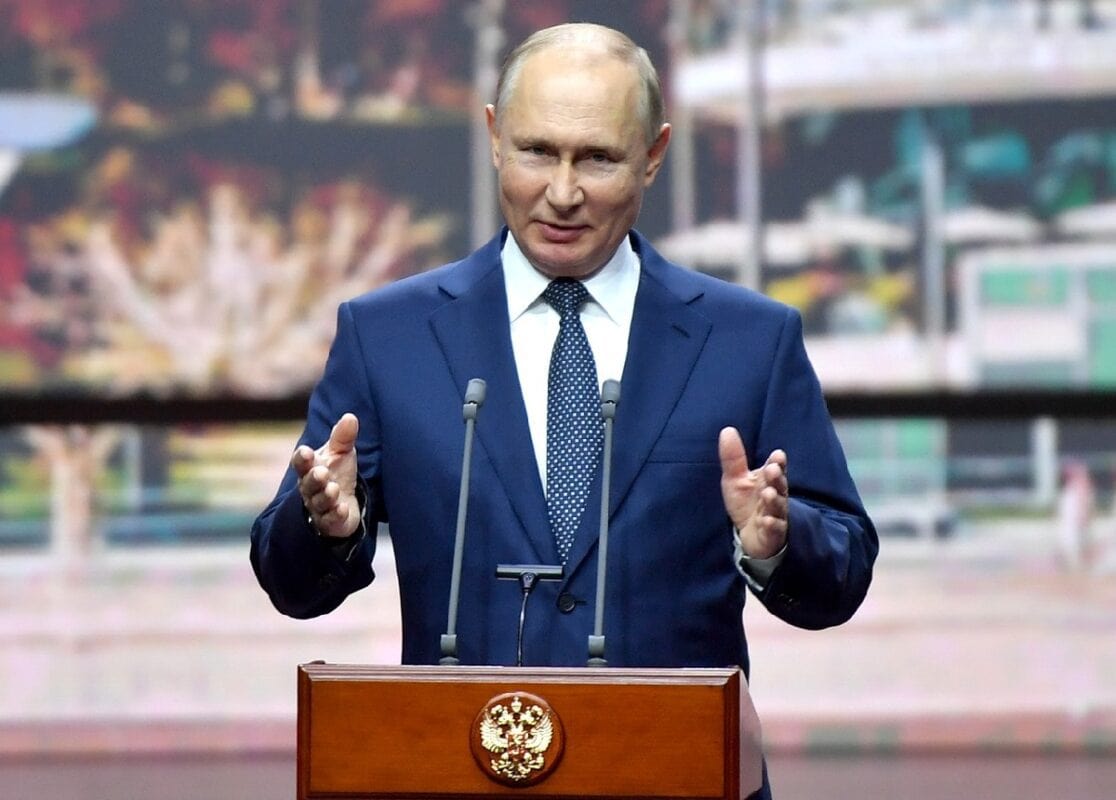Ukrainians recently unearthed hundreds of bodies in a forest near Izyum, many of which showed clear signs of torture. As Ukrainians recoup territory seized by Russia in its most recent invasion—and perhaps move on to recapture territories seized by Russia in 2014—Russian President Vladimir Putin faces open defiance at home. A St. Petersburg district council openly called for Putin’s ouster for “treason.” An ever-growing number of close Putin associates, meanwhile, have died under mysterious circumstances after challenging their leader’s policies.
In practice, seeking justice for war criminals is tricky. Indeed, there have been high-profile indictments. In 2009, the International Criminal Court (ICC) issued an arrest warrant for then-Sudanese President Omar al-Bashir for genocide. UN special international tribunals tried Serbian President Slobodan Milosevic and former Liberian President Charles Taylor. Often, however, diplomats and sitting officials refrain from indicting sitting leaders for fear that such action could create a disincentive for peace: If a leader knew he faced trial, prison, and perhaps death for surrendering, then there is no possibility of convincing them to stand down and accept exile in exchange for peace.
The ICC and UN processes are also slow and inefficient. Milosevic died in prison seven years after his indictment and the fourth year of his trial. The International Criminal Tribunal for Rwanda took more than a decade, cost over $1 billion, but ultimately convicted only 85 participants. Too often, international tribunals become a jobs program for human rights activists and lawyers, with justice seemingly a secondary concern. The long process can exacerbate open conflicts and impede peace. Treating war crimes and genocide strictly as legal rather than military issues can impede justice in other ways. Consider the Islamic State: While many observers might view Islamic State execution videos as a clear indication of crimes against humanity, tying Islamic State individuals to specific actions beyond any reasonable doubt can be far trickier given the lack of physical evidence and messy chains of custody for that which does exist.
Human rights organizations can also impede justice. Iraqi officials decided to create the Iraq Special Tribunal to try Iraqi President Saddam Hussein for his crimes because the UN was unhelpful. Privately, many Iraqi officials also worried about UN involvement given the complicity of top-level UN officials in the Oil-for-Food corruption scandal. While Human Rights Watch had gathered evidence of the Saddam regime’s chemical weapons use against the Kurds, when the Iraqis put Saddam on trial, its Executive Director Ken Roth refused to provide it to the elected Iraqi government unless Iraqi leaders first agreed to take the death penalty off the table. This ideological imperialism was unacceptable to the elected Iraqi government that chose instead to focus the initial trial on an incident of Saddam ordering collective punishment in the Shi’ite south where the Iraqis were able to gather evidence from mass graves without the interference of American and European human rights groups.
Back to Putin: The argument that seeking justice and capital punishment for the Russian leader might impede a peaceful resolution to the Ukraine conflict is void as there is no possibility that Putin will compromise, nor is there any location where he can live in exile. The question about whether Putin might use nuclear weapons centers not on whether his opponents seek retribution; rather, the fear that Putin could utilize nuclear weapons is tied to the fact that he has been unable to achieve his aims conventionally.
Russia’s status as a permanent member of the UN Security Council (an issue that should be open to debate following the conclusion of this war) also hampers a UN role in his accountability. While the European Union, Amnesty International, and Human Rights Watch might oppose his execution, its application should be a question for Ukrainians, not for those operating on ideological agendas for which accountability to the victims of war crimes is secondary to activism against capital punishment. The fact that Putin sought to kill Ukrainian President Volodymyr Zelensky should undercut Putin’s own sovereign immunity defense.
Putin’s public execution would not simply be an act of revenge. Like Saddam’s hanging, it would be cathartic and allow society to move on; that corrupt Iraqi leaders seek to squander their opportunities is a different issue unrelated to Saddam’s hanging. After Russia’s eventual defeat, it is crucial that Russian liberals be able to rebuild society. Should Putin remain alive, he and the hundreds of billions of dollars he has embezzled would permanently undermine Russia’s reconstitution as a responsible member of the international community. That said, revenge for the sake of justice is warranted after the terror Ukrainians suffered.

Russian President Putin. Image Credit: Creative Commons.
Finally, as U.S. political debates blind American partisans, let us be clear: There is no equivalence between Russia’s invasion of Ukraine and the U.S. invasion of Afghanistan and Iraq. The U.S. goal was never conquest and annexation. And while some activists and intellectuals suggest George W. Bush was responsible for more than one million Iraqi deaths, this absolves those who actually did that killing: Iranian-backed militias and Sunni insurgents. The United States partnered with a freely elected Iraqi government to defend Iraqis from those forces at great cost in blood and treasure. The United States is not Russia; those who assert moral equivalence are clowns.
Putin must pay the ultimate price for his crimes.
Expert Biography: Now a 1945 Contributing Editor, Dr. Michael Rubin is a Senior Fellow at the American Enterprise Institute (AEI). Dr. Rubin is the author, coauthor, and coeditor of several books exploring diplomacy, Iranian history, Arab culture, Kurdish studies, and Shi’ite politics, including “Seven Pillars: What Really Causes Instability in the Middle East?” (AEI Press, 2019); “Kurdistan Rising” (AEI Press, 2016); “Dancing with the Devil: The Perils of Engaging Rogue Regimes” (Encounter Books, 2014); and “Eternal Iran: Continuity and Chaos” (Palgrave, 2005).

